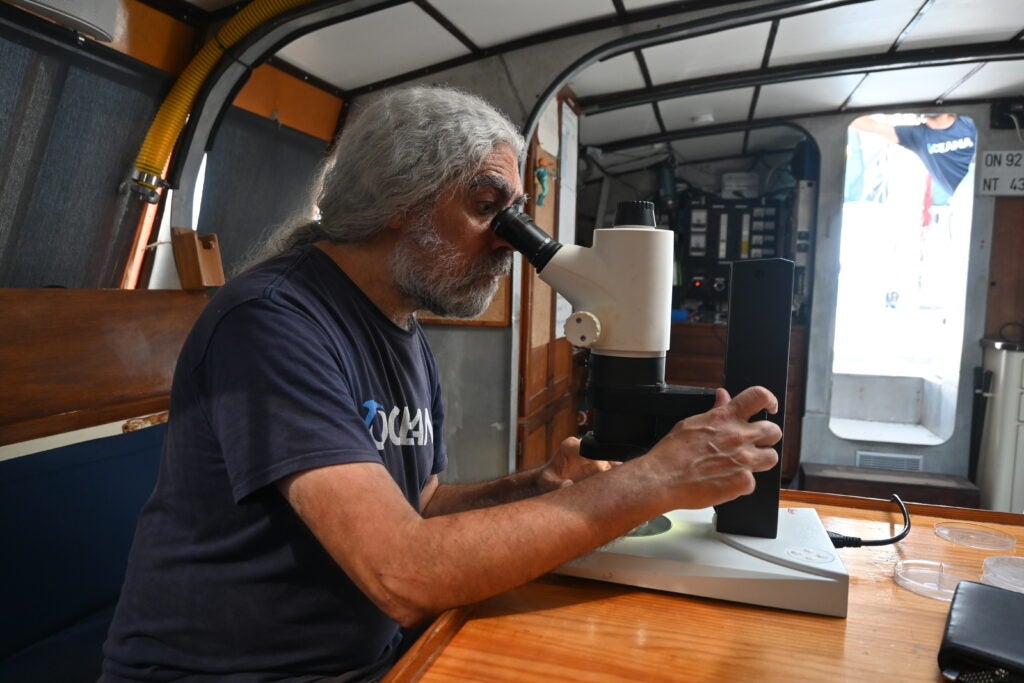Overview
As part of its continued efforts to support marine conservation in the Balearic Islands, Oceana conducted a series of ROV dives to document deep-sea benthic ecosystems and provide scientific data to support the creation or expansion of marine reserves.
Surveying Deep Habitats in Tramuntana (North Mallorca)
The main focus of the expedition was the Tramuntana region in North Mallorca, where local fishers and stakeholders are urging the government to designate a new marine reserve. Although the area had previously been surveyed, data on deep habitats remained limited.
Using Oceana’s remotely operated vehicle (ROV), dives were conducted between 40 and 120 metres depth. The videos revealed habitats rich in rhodolith beds and coralligenous assemblages, both protected under EU fisheries regulation and the Barcelona Convention. The surveys also identified essential fish habitats, such as colonial nesting sites for picarels, and habitat-forming species like gorgonians and sponges. Preliminary observations suggest that the proposed marine reserve could also benefit endangered and protected species.
Documenting Existing Marine Reserves
With the Ranger already operating in the Balearic Sea, Oceana also collected data in two existing marine reserves:
- Ponent Marine Reserve (West Mallorca): The reserve is under review for potential boundary changes that could exclude important seabed areas. Oceana’s dives documented large protected sponges and coralligenous beds, which must be considered in the ongoing evaluation.
- Tagomago Marine Reserve (Northeast Ibiza): While the regional government has protected the interior waters, the national government has yet to fulfil its commitment to protect the surrounding external waters. Data gathered may help accelerate this long-requested expansion, supported by local fishers.
New Insights from Eastern Ibiza
Before concluding the expedition, Oceana explored an additional site between the Ses Bledes Islands and Es Vedrà Island in eastern Ibiza; an area already proposed by Oceana as a Strictly Protected Area. Previous surveys had indicated the presence of well-preserved coralligenous habitats. The new ROV dives confirmed this and provided striking imagery of healthy ecosystems, including extensive gorgonian forests. These findings further strengthen the case for legal protection of the area.
Diaries









